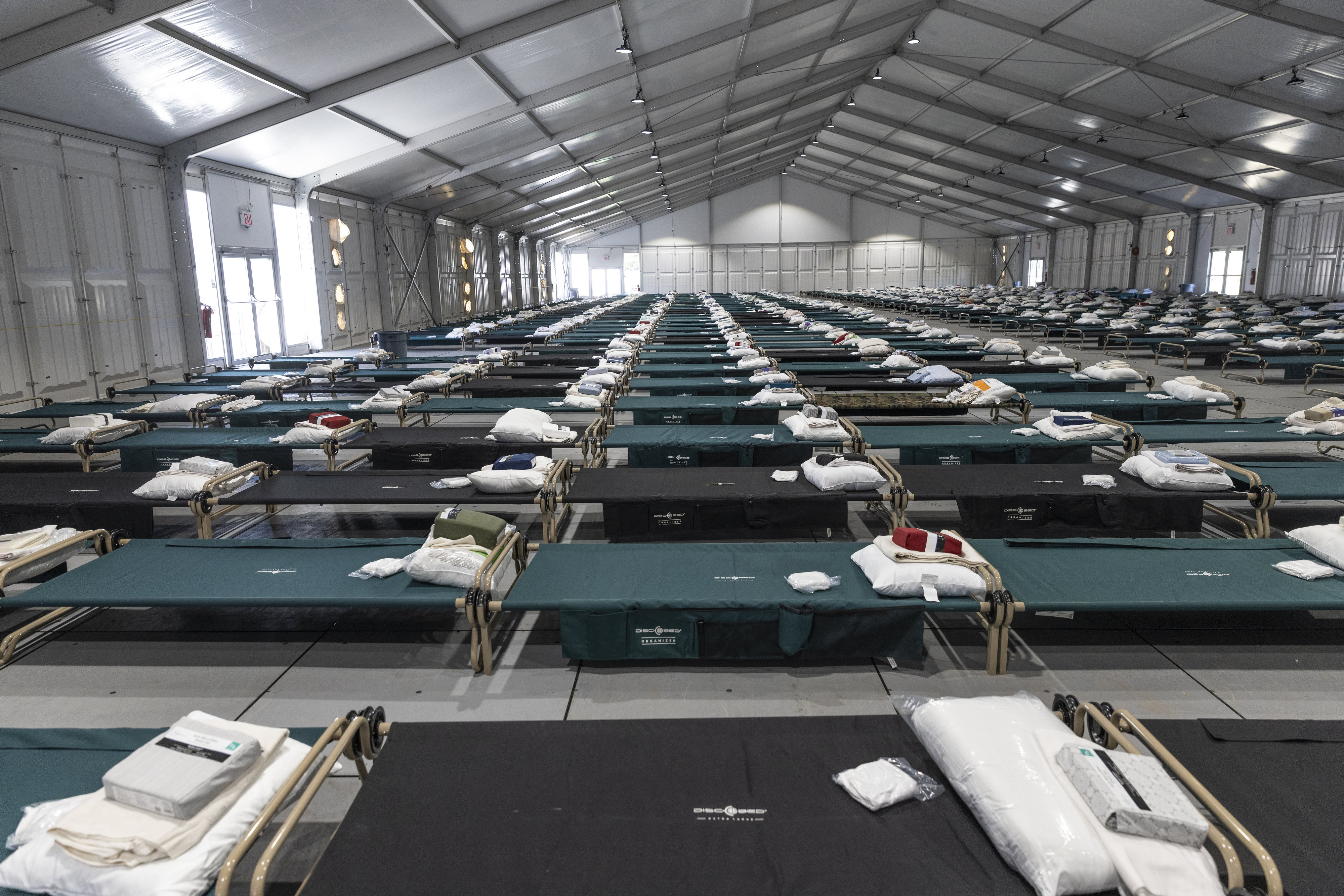A three-day-long shelter standoff outside a midtown Manhattan hotel has come to an end, with with dozens of migrants having reluctantly moved to a Brooklyn mega shelter — but that's not where all of them ended up.
Asylum seekers packed up their personal belongings outside the Watson Hotel Wednesday night, as police told them they had to leave. City sanitation workers came shortly after to pick up and sweep up the sidewalk on West 57th Street.
The approximately 30 migrants who had been there for days scrambled to get out of there. Most loaded their bags onto a bus, which would take them to the mega shelter at the Brooklyn Cruise Terminal. Some told NBC New York in Spanish that they've had enough and had no choice but to go.
Get Tri-state area news delivered to your inbox.> Sign up for NBC New York's News Headlines newsletter.
The move infuriated pro-immigration activists.
"They’re forcing the migrants to leave the street, even though it’s not illegal to be on the street. And they’re forcing them to choose," said Luna Gray, of South Bronx Mutual Aid. "They know exactly what they’re doing and it’s intentional to hurt these people who have nothing."
Earlier in the day, Mayor Eric Adams said most of the asylum seekers who didn’t want to leave at first, had opted to move to the shelter for single-adult men. The city started giving rooms at the Watson Hotel to migrant families and single women with children, and told the men they had to leave.
"What they said to me is, 'Thank you, Mr. Mayor, we would like to work,'" Adams said. "We did not hear one person there who said they did not want to be there."
The mayor's press secretary said the Adams administration is "grateful that almost all single men who were staying at the Watson Hotel have chosen to heed our calls and come inside from the frigid temperatures tonight.
"The single men who were staying at the Watson have now all either chosen to transfer to the Brooklyn Cruise Terminal — a humanitarian relief center that multiple elected officials today called a 'warm' location — or decided to leave our care by connecting with friends, family, or other networks," said Fabien Levy, criticizing the "agitators" who encouraged the small number of remaining migrants who refused to accept going to the shelter.
The city said that no arrests were made Wednesday night. Those who refused to go to the shelter would be accepted if they changed their mind in the coming days, Levy said.
In January, the city said it would turn the Brooklyn Cruise Terminal into a temporary shelter for 1,000 single men, and on Sunday officials began relocating migrants from midtown's Watson Hotel to the cruise terminal.
But protests involving dozens of people started that night, and were said to be centered around migrants' concerns regarding a lack of personal space at the mega-shelter in Brooklyn, as hundreds of cots could be seen lined up head to toe.
There were also concerns about the temperature inside the tent, as well as the bathroom shower facilities, which had been set up outside. Temperatures are expected to plunge into the single digits over the weekend.
(Obtenga toda la información más reciente en español aquí.)
The city defended the terminal facility and said the space at the Watson was needed to deal with the huge influx of migrant families being bussed to the city from the border.
"More than 42,000 asylum seekers have arrived in New York City since last spring and we continue to surpass our moral obligations as we provide asylum seekers with shelter, food, health care, education, and a host of other services.The facilities at Brooklyn Cruise Terminal will provide the same services as every other humanitarian relief center in the city, and the scheduled relocations to Brooklyn Cruise Terminal this weekend took place as planned. We remain in serious need of support from both our state and federal governments," City Hall previously said in a statement.
Last summer Texas officials began bussing asylum-seeking border crossers almost daily from local facilities to New York City, whose right-to-shelter laws mean the city has to house all of the migrants.
The influx has stretched the city's infrastructure to the breaking point, leading Mayor Eric Adams to recently suggest it was close to not being able to accommodate any more people. As of last Thursday, according to the city Department of Homeless Services, nearly 70,000 people were in city-backed shelters, including more than 16,000 single adult men.
(The number includes both migrants, as well as the local homeless population.)




